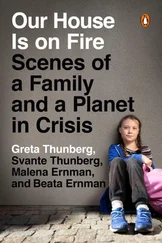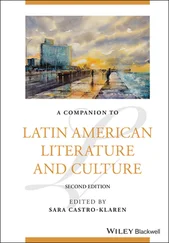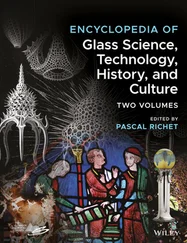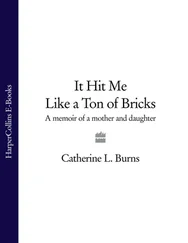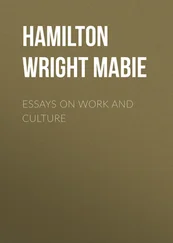Mamaw had her dreams but never the opportunity to pursue them. Her greatest love was children, in both a specific sense (her children and grandchildren were the only things in the world she seemed to enjoy in old age) and a general one (she watched shows about abused, neglected, and missing kids and used what little spare money she had to purchase shoes and school supplies for the neighborhood’s poorest children). She seemed to feel the pain of neglected kids in a deeply personal way and spoke often of how she hated people who mistreated children. I never understood where this sentiment came from—whether she herself was abused as a child, perhaps, or whether she just regretted that her childhood had ended so abruptly. There is a story there, though I’ll likely never hear it.
Mamaw dreamed of turning that passion into a career as a children’s attorney—serving as a voice for those who lacked one. She never pursued that dream, possibly because she didn’t know what becoming an attorney took. Mamaw never spent a day in high school. She’d given birth to and buried a child before she could legally drive a car. Even if she’d known what was required, her new lifestyle offered little encouragement or opportunity for an aspiring law student with three children and a husband.
Despite the setbacks, both of my grandparents had an almost religious faith in hard work and the American Dream. Neither was under any illusions that wealth or privilege didn’t matter in America. On politics, for example, Mamaw had one opinion—“They’re all a bunch of crooks”—but Papaw became a committed Democrat. He had no problem with Armco, but he and everyone like him hated the coal companies in Kentucky thanks to a long history of labor strife. So, to Papaw and Mamaw, not all rich people were bad, but all bad people were rich. Papaw was a Democrat because that party protected the working people. This attitude carried over to Mamaw: All politicians might be crooks, but if there were any exceptions, they were undoubtedly members of Franklin Delano Roosevelt’s New Deal coalition.
Still, Mamaw and Papaw believed that hard work mattered more. They knew that life was a struggle, and though the odds were a bit longer for people like them, that fact didn’t excuse failure. “Never be like these fucking losers who think the deck is stacked against them,” my grandma often told me. “You can do anything you want to.”
Their community shared this faith, and in the 1950s that faith appeared well founded. Within two generations, the transplanted hillbillies had largely caught up to the native population in terms of income and poverty level. Yet their financial success masked their cultural unease, and if my grandparents caught up economically, I wonder if they ever truly assimilated. They always had one foot in the new life and one foot in the old one. They slowly acquired a small number of friends but remained strongly rooted in their Kentucky homeland. They hated domesticated animals and had little use for “critters” that weren’t for eating, yet they eventually relented to the children’s demands for dogs and cats.
Their children, though, were different. My mom’s generation was the first to grow up in the industrial Midwest, far from the deep twangs and one-room schools of the hills. They attended modern high schools with thousands of other students. To my grandparents, the goal was to get out of Kentucky and give their kids a head start. The kids, in turn, were expected to do something with that head start. It didn’t quite work out that way.
Before Lyndon Johnson and the Appalachian Regional Commission brought new roads to southeastern Kentucky, the primary road from Jackson to Ohio was U.S. Route 23. So important was this road in the massive hillbilly migration that Dwight Yoakam penned a song about northerners who castigated Appalachian children for learning the wrong three R’s: “Reading, Rightin’, Rt. 23.” Yoakam’s song about his own move from southeastern Kentucky could have come from Mamaw’s diary:
They thought readin’, writin’, Route 23 would take them to the good life that they had never seen;
They didn’t know that old highway would lead them to a world of misery
Mamaw and Papaw may have made it out of Kentucky, but they and their children learned the hard way that Route 23 didn’t lead where they hoped.
Mamaw and Papaw had three kids—Jimmy, Bev (my mom), and Lori. Jimmy was born in 1951, when Mamaw and Papaw were integrating into their new lives. They wanted more children, so they tried and tried, through a heartbreaking period of terrible luck and numerous miscarriages. Mamaw carried the emotional scars of nine lost children for her entire life. In college I learned that extreme stress can cause miscarriages and that this is especially true during the early part of a pregnancy. I can’t help but wonder how many additional aunts and uncles I’d have today were it not for my grandparents’ difficult early transition, no doubt intensified by Papaw’s years of hard drinking. Yet they persisted through a decade of failed pregnancies, and eventually it paid off: Mom was born on January 20, 1961—the day of John F. Kennedy’s inauguration—and my aunt Lori came along less than two years later. For whatever reason, Mamaw and Papaw stopped there.
Uncle Jimmy once told me about the time before his sisters were born: “We were just a happy, normal middle-class family. I remember watching Leave It to Beaver on TV and thinking that looked like us.” When he first told me this, I nodded attentively and left it alone. Looking back, I realize, that to most outsiders, a statement like that must come off as insane. Normal middle-class parents don’t wreck pharmacies because a store clerk is mildly rude to their child. But that’s probably the wrong standard to use. Destroying store merchandise and threatening a sales clerk were normal to Mamaw and Papaw: That’s what Scots-Irish Appalachians do when people mess with your kid. “What I mean is that they were united, they were getting along with each other,” Uncle Jimmy conceded when I later pressed him. “But yeah, like everyone else in our family, they could go from zero to murderous in a fucking heartbeat.”
Whatever unity they possessed early in their marriage began to evaporate after their daughter Lori—whom I call Aunt Wee—was born in 1962. By the mid–1960s, Papaw’s drinking had become habitual; Mamaw began to shut herself off from the outside world. Neighborhood kids warned the mailman to avoid the “evil witch” of McKinley Street. When the mailman ignored their advice, he met a large woman with an extra-long menthol cigarette hanging out of her mouth who told him to stay the fuck off of her property. “Hoarder” hadn’t entered everyday parlance, but Mamaw fit the bill, and her tendencies only worsened as she withdrew from the world. Garbage piled up in the house, with an entire bedroom devoted to trinkets and debris that had no earthly value.
To hear of this period, one gets the sense that Mamaw and Papaw led two lives. There was the outward public life. It included work during the day and preparing the kids for school. This was the life that everyone else saw, and by all measures it was quite successful: My grandfather earned a wage that was almost unfathomable to friends back home; he liked his work and did it well; their children went to modern, well-funded schools; and my grandmother lived in a home that was, by Jackson standards, a mansion—two thousand square feet, four bedrooms, and modern plumbing.
Home life was different. “I didn’t notice it at first as a teenager,” Uncle Jimmy recalled. “At that age, you’re just so wrapped up in your own stuff that you hardly recognize the change. But it was there. Dad stayed out more; Mom stopped keeping the house—dirty dishes and junk piled up everywhere. They fought a lot more. It was all around a rough time.”
Читать дальше
Конец ознакомительного отрывка
Купить книгу
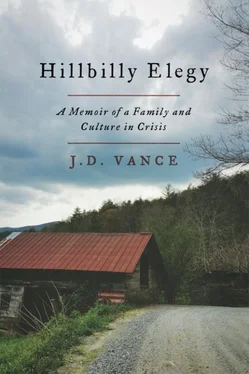
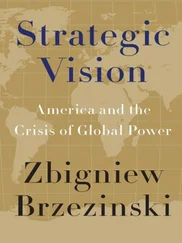

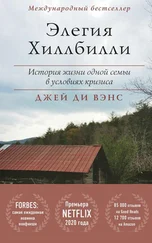
![Джей Вэнс - Элегия Хиллбилли [litres]](/books/399146/dzhej-vens-elegiya-hillbilli-litres-thumb.webp)
